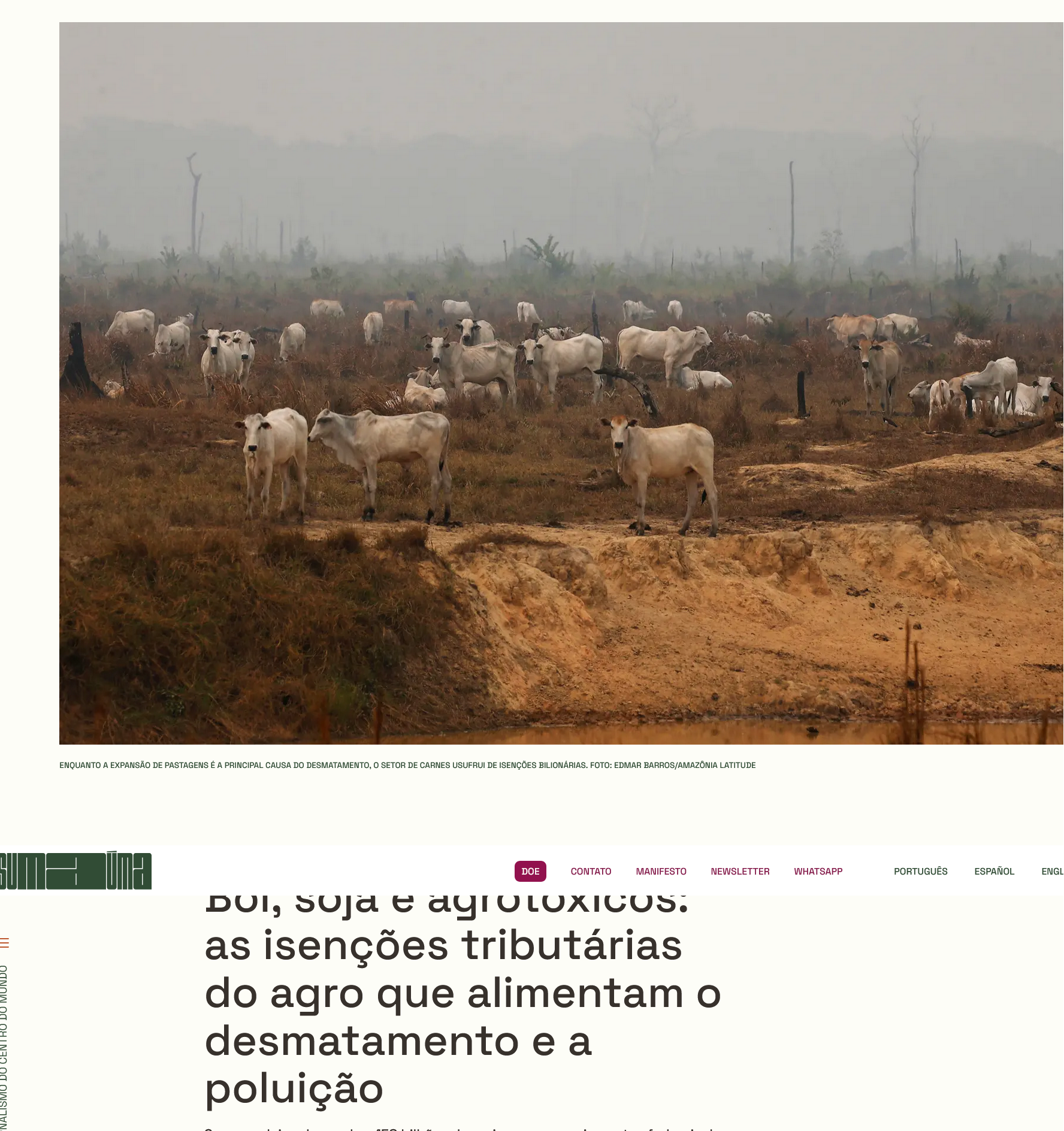Environmental platform ‘Sumaúma’ reports on the tax exemptions that are fuelling deforestation and pollution in the Amazon
Describing itself as providing ‘journalism
from the centre of the world’ the Brazilian environmental media platform Sumaúma reports in detail on the tax exemptions that mean the Brazilian government is missing out on R$ 158 billion in annual federal tax on global agribusiness.
CICTAR researcher Livi Gerbase supported the research and is extensively quoted,
The top ten agribusiness companies, in terms of federal tax exemptions, were spared tax payments worth at least R$ 26 billion in 2024 – nearly 10 times all of the money paid into the Amazon Fund, which invests in projects to protect and recover the forest.
Altogether, according to information provided by these same companies and released by Brazil’s Federal Revenue service, tax exemptions directly benefiting agriculture and the ag industry came to R$ 158.17 billion in 2024.
These findings, reported by the environmental media platform ‘Sumaúma’ and available in Portuguese, English and Spanish, include ‘expert analysis’ from CICTAR researcher Livi Gerbase:
“This data is worrisome because it reflects the injustice of the contemporary tax system,” Gerbase says. She notes that several of these agrochemical and fertilizer multinationals operating in Brazil posted low profits or losses from 2020 to 2024. Because corporate income tax is calculated using profits, it ends up being a proportionally small amount. Nevertheless, these low profits are in opposition to the much larger volume of dividends these companies say they distributed during the same period – dividends are the portion of profits that go to shareholder compensation. In other words, the companies’ accounting has a glaring incoherence.
Livi Gerbase is critical of the fact that not all of the agricultural multinationals that receive billions on tax incentives, and have Brazil among their biggest markets, publish balance sheets on their operations in the country. “Despite receiving billions in federal tax incentives, we don’t know how much tax they pay in Brazil, their profitability and revenue, their investments in the country or their numbers of workers,” she says. “We need these multinationals to contribute to Brazil by paying their taxes,” Gerbase adds.

